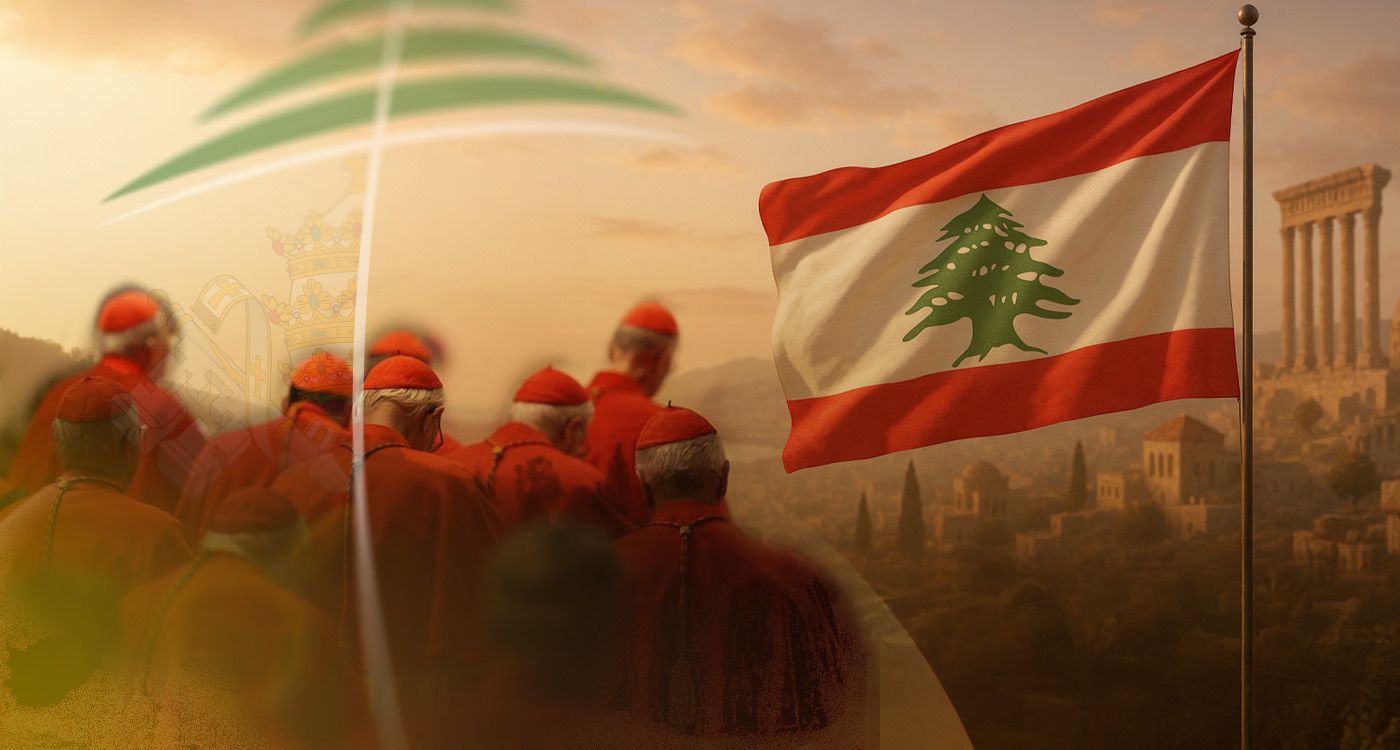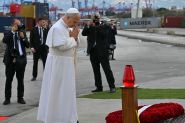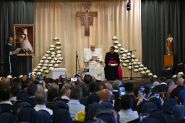
Pope Leo XIV’s visit could reinforce Lebanon’s role as a symbol of religious coexistence, foster dialogue between communities, and bring valuable international attention.
From Paul VI to Benedict XVI, Lebanon has welcomed historic visits from popes, each carrying a message of peace, unity, and intercommunal dialogue. As the country continues to face crises, Pope Leo XIV’s upcoming visit follows this tradition and underscores the unique bond between the Vatican and the Land of the Cedars. Since 1964, three pontiffs have visited the Mediterranean country, which was the home of at least 22 saints canonized by the Catholic Church.
Paul VI: The First Historic Visit
In 1964, Pope Paul VI made a brief stopover in Beirut on his way to India to meet Maronite Patriarch Paul Pierre Meouchi. Though short, this encounter inaugurated direct dialogue between the Vatican and Lebanon, marking the beginning of special attention to the country. The gesture underscored Lebanon’s role as a spiritual and diplomatic crossroads in the region.
John Paul II: A Defining Visit
Pope John Paul II’s visit to Lebanon in May 1997 remains one of the most emblematic moments in the country’s relations with the Vatican. Seven years after the end of the civil war, the pope arrived with a clear message of unity and reconciliation between Lebanon’s diverse communities. His stops in Beirut and Harissa allowed him to meet religious and civil authorities and to address vast crowds gathered to hear him.
During his trip, Pope John Paul II delivered his famous statement, “Lebanon is more than a country; it is a message,” highlighting the country’s role as a symbol of religious coexistence and dialogue between East and West. Through his words, he urged the Lebanese to build a future of peace and solidarity while respecting their cultural and religious diversity.
Benedict XVI: A Call to Reject Violence
In September 2012, Benedict XVI visited Lebanon amid regional upheaval brought on by the Arab Spring and burgeoning civil war in neighboring Syria. Over three days, the pope traveled to Beirut, Jounieh, and Harissa, meeting religious and civil authorities.
Benedict XVI urged the Lebanese to reject violence and work toward a future of solidarity among all communities. His message to Lebanon was unequivocal: turn away from violence and strengthen bonds of unity across the nation.
During the visit, the pope signed the apostolic exhortation Ecclesia in Medio Oriente (The Church in the Middle East), urging Christians to remain in the region and persevere in their pursuit of peace. Benedict XVI’s visit was seen as a breath of hope and an essential source of moral support for the country.
Lebanon at the Heart of the Angelus
Even popes who have not visited the country evoke Lebanon in their public addresses. Pope Francis expressed support for Lebanon during an Angelus—the weekly Papal midday address—following the August 4, 2020, blast at the Beirut Port that caused widespread damage in Lebanon’s capital and killed at least 220 people.
In a December 2020 letter to Lebanon, Pope Francis called on the international community to “help Lebanon to stand apart from conflicts and regional tensions” and resume a normal existence, while expressing his desire to visit the country.
A New Pope Expected in Lebanon: What Are the Implications?
The visit of Pope Leo XIV, scheduled for November 30 to December 2, 2025, has stirred considerable anticipation. His itinerary will include stops in Annaya, Harissa, and Bkerkeh, and meetings with young people and religious leaders. He is also scheduled to visit Deir El Salib Hospital and the Port of Beirut, ending his trip with a Mass in the capital.
Pope Leo XIV’s visit could reinforce Lebanon’s role as a symbol of religious coexistence, foster dialogue between communities, and bring valuable international attention. For Lebanese Christians, this pilgrimage is a significant source of moral support, reminding them that their country continues to occupy a special place in the heart of the Vatican. Beyond diplomacy and symbolism, the visit conveys above all a message of hope: that Lebanon can remain a beacon of coexistence and faith in a region often shaken by crises.




Comments